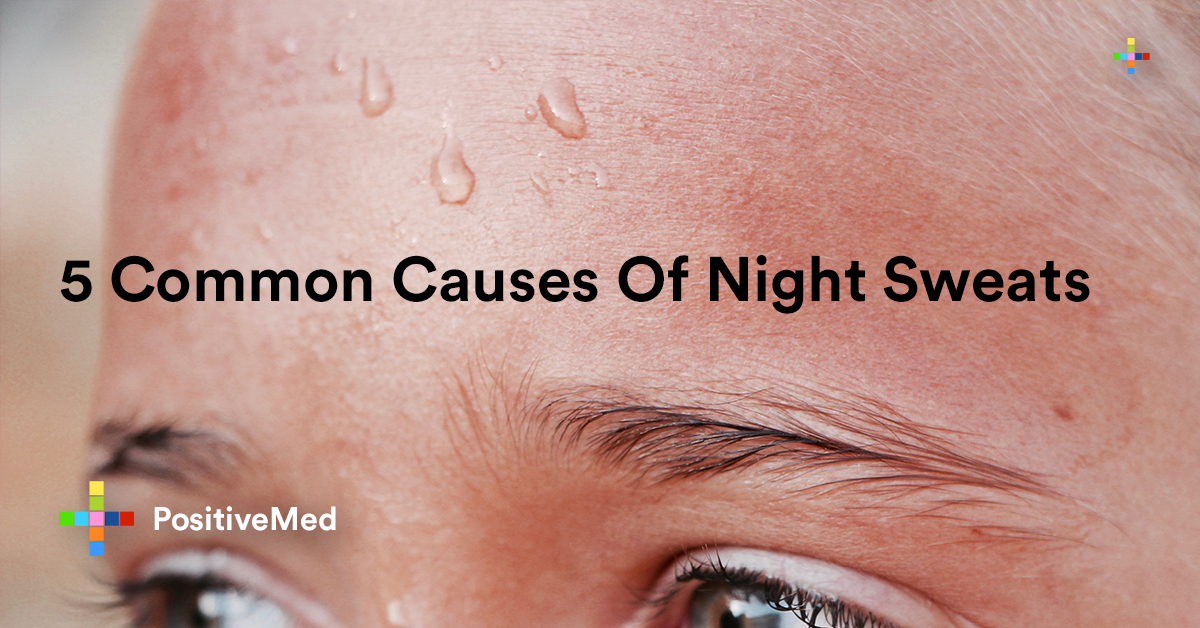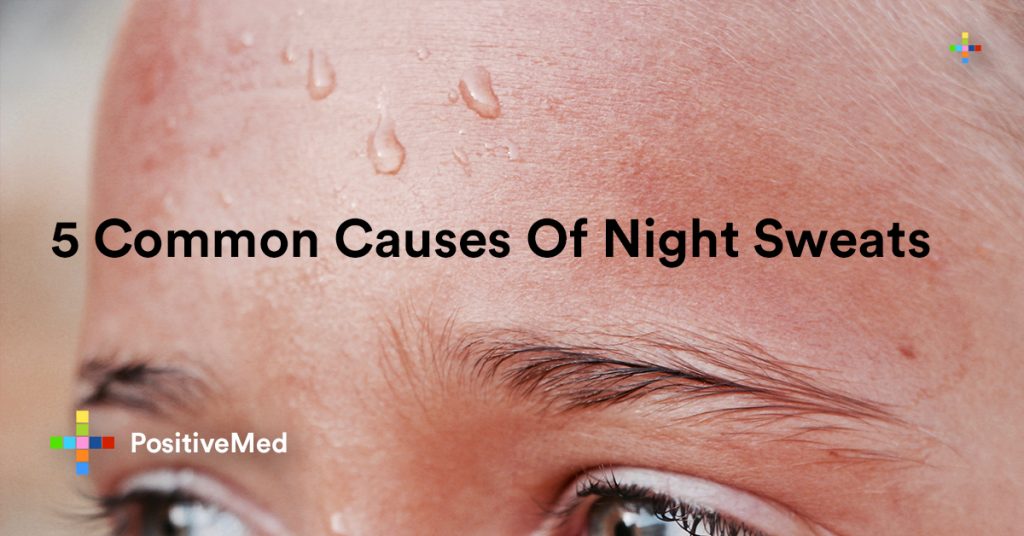You wake up soaked with sweat. It’s uncomfortable, but is it a problem? Sometimes overnight sweating is a side effect of keeping your thermostat too high, wearing heavy pajamas or using extra blankets. Sometimes, though, it is a sign of a bigger problem. If night sweats become a regular occurrence, they may be caused by an underlying medical condition.

1. Obstructive Sleep Apnea:
People with obstructive sleep apnea do not sleep well at night. Their airways become blocked while they sleep, restricting airflow. People with obstructive sleep apnea often experience excessive night sweating as a side effect. Other common side effects are loud snoring, daytime exhaustion, headaches, and crankiness. If you experience some of these symptoms in addition to night sweats, see your doctor. Obstructive sleep apnea should be diagnosed and treated before it causes an accident, heart problems or diabetes. Doctors can diagnose sleep apnea with a sleep test. Treatment, such as a
If you experience some of these symptoms in addition to night sweats, see your doctor. Obstructive sleep apnea should be diagnosed and treated before it causes an accident, heart problems or diabetes. Doctors can diagnose sleep apnea with a sleep test. Treatment, such as a nighttime-breathing machine, can reduce night sweats and other symptoms.
2. Menopause:
Menopause and the years surrounding it are filled with hormonal ups and downs. These fluctuations can wreak havoc on your body temperature. Menopausal women are often plagued with daytime hot flashes and nighttime sweats. They are typically accompanied by other symptoms, like irregular cycles, dry skin and moodiness. The average age when women reach menopause is 51 years, but you may begin to notice signs, such as night sweats, years before then. Some women even get symptoms during their 30s. Menopause is a normal part of a woman’s life, so there’s no need to cure it, but your doctor can suggest treatments to make you more comfortable. He or she might recommend hormone therapy to ease your hot flashes and night sweats.
RELATED ARTICLE: This is Why Your Legs CRAMP at Night and How to Eliminate It
3. Anxiety:
When you feel anxious or stressed during the day, you might get sweaty. Chronic anxiety can cause the same thing to happen at night. Managing your anxiety symptoms may help relieve this annoying side-effect. Talking with a counselor eases anxiety symptoms for many people. Many therapists practice cognitive-behavioral therapy, which teaches you to adjust the way that you think. You learn to identify and redirect anxious thoughts. If therapy alone is not enough, mental health professionals sometimes prescribe prescription treatments, such as antidepressants, for their patients. Getting regular exercise, reducing stress and eating a balanced diet can also ease anxiety symptoms.
4. Illness:
Don’t automatically assume the worst if you start to experience night sweats, but if they continue regularly, visit a doctor. Night sweating is a side effect of many diseases, some serious, and it’s best to get treated sooner rather than later. These illnesses can include bacterial infections, viral infections, and even some cancers. In most cases, night sweats will not be your only symptom. Your doctor will discuss your various symptoms and run tests, such as a complete blood count, to diagnose you. Treatment varies depending on your illness but may include antibiotics or chemotherapy.
5. Low Blood Sugar:
Hypoglycemia, also known as low blood sugar, often causes sweating all over the body in people with diabetes. It can happen during the day, but if your blood sugar goes low during the night, it can happen then, too. Low blood sugar is a common side effect of insulin and other diabetes medications. Your doctor can suggest lifestyle changes that will reduce your chances of experiencing hypoglycemia. These may include eating regular meals and monitoring your blood glucose levels.
Night sweats may be unpleasant, but they can be a beneficial sign that your body is in need of extra attention. Pay attention to chronic night sweats and consider whether they are accompanied by other symptoms. Talk to your doctor about your sweating and other concerns. He or she can help you uncover the underlying cause, so you’ll soon be on your way to a better, healthier you.






